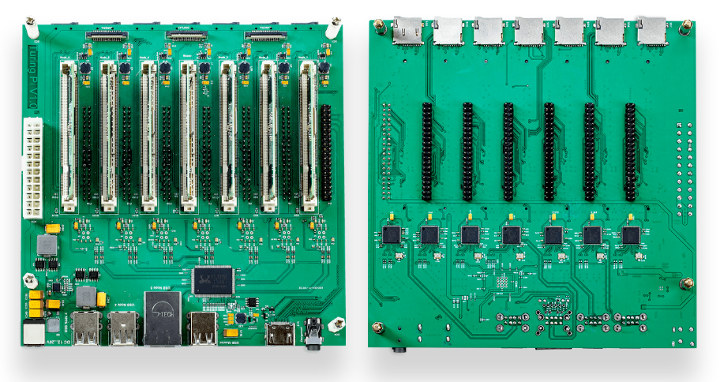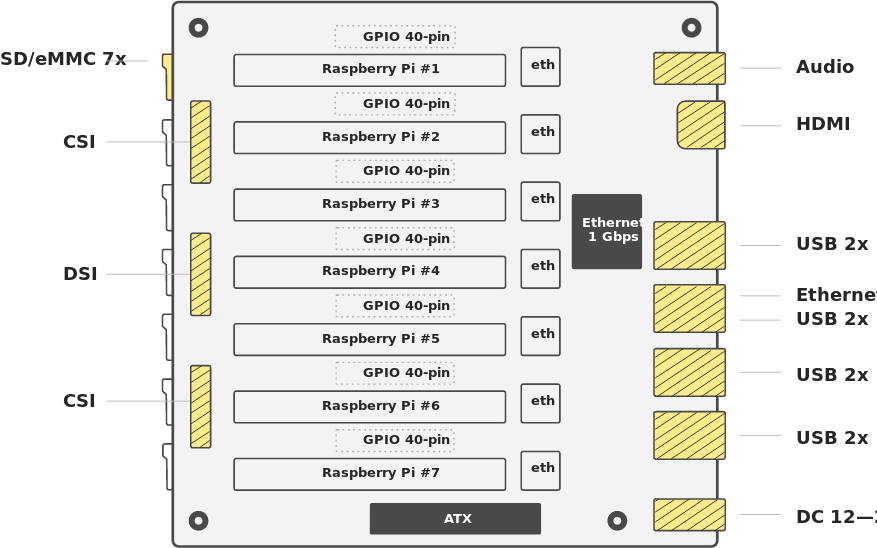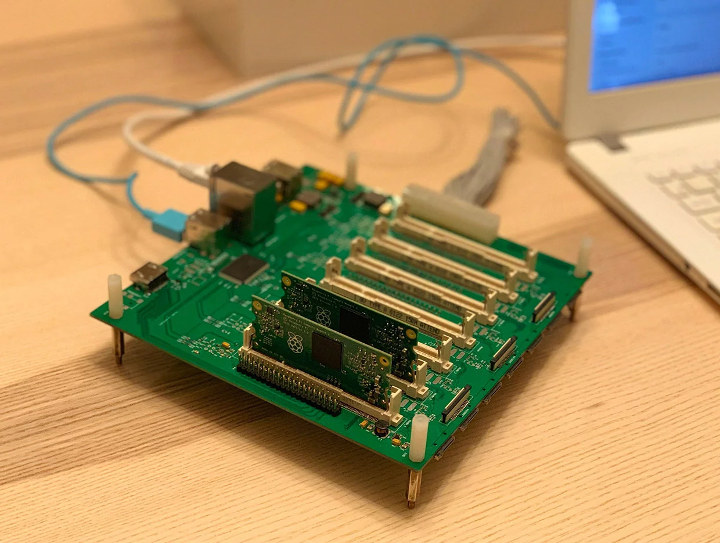We’ve already covered several cluster solutions based on Raspberry Pi boards such as Bitscope Blade with up to 40 Raspberry Pi boards, a 16 Raspberry Pi Zero cluster board prototype, Circumference “datacenter-in-a-box” with up to 32 Raspberry Pi 3 B+ boards.
If you want something more compact, it makes sense to develop a platform with Raspberry Pi Compute Modules instead, and we’ve already published news about MiniNodes Raspberry Pi 3 CoM Carrier Board that supports up to to 5 Compute Modules 3/3+ last year. There’s now another option with Turing Pi Clusterboard support up to 7 Compute Modules for applications leveraging Kubernetes, Docker, Jupyter Notebook, machine learning (TensorFlow/Caffe), and serverless stack.

Turing Pi specifications:
- 7x Sockets for Raspberry Pi Compute Module 3/3+
- Storage – 7x microSD card slots
- Video Output – 1x HDMI port, MIPI DSI connector
- Audio – 1x 3.5mm audio jack
- Camera I/F – 2x MIPI CSI connectors
- Networking – Gigabit Ethernet port and on-board switch
- USB – 8x USB ports
- Power Supply – 12-20V DC jack or ATX power supply
- Dimensions – 170 x 170mm (mini-ITX form factor)

The product page does not contain much information at this stage, and specifically no details about software installation or tutorials, but the board is available for pre-order for $128 with shipping planned for this autumn. You’ll also need to add our own Raspberry Pi Compute modules, and with pricing starting at $25 for the RPi CM3 Lite module, and a 7-module system would go for a little over $300, not including microSD cards nor a power supply.
Via LinuxGizmos and Technabob

Jean-Luc started CNX Software in 2010 as a part-time endeavor, before quitting his job as a software engineering manager, and starting to write daily news, and reviews full time later in 2011.
Support CNX Software! Donate via cryptocurrencies, become a Patron on Patreon, or purchase goods on Amazon or Aliexpress





